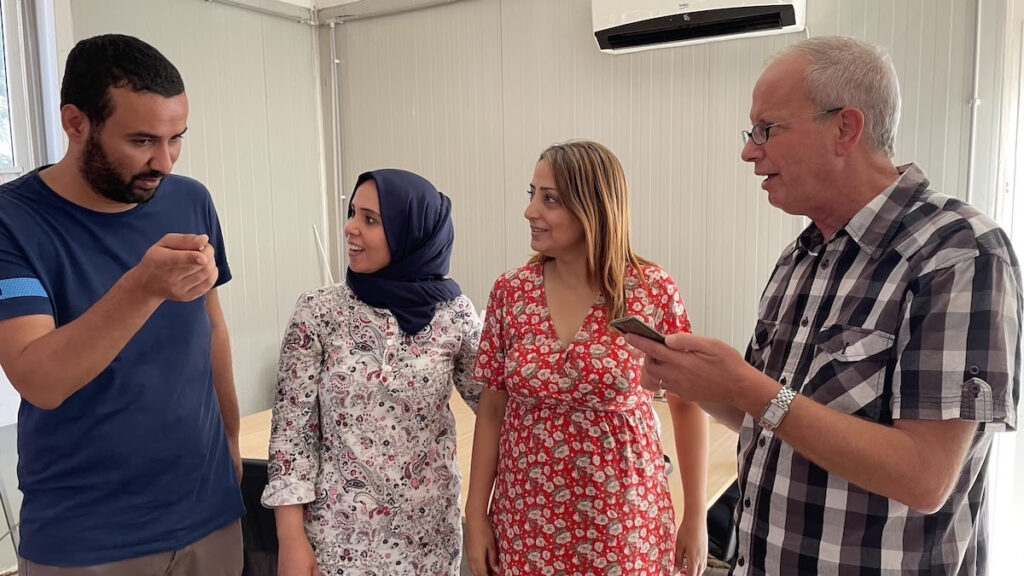In a recent CPJ mission to Tunisia, local journalists spoke to CPJ about the erosion of press freedom alongside other human rights in the country over the last 14 months.
In July 2021, Tunisia President Kais Saied fired Prime Minister Hichem Mechichi and suspended parliament, granting himself sole executive power. A year later, a heavily boycotted voter referendum approved a new constitution to replace what was considered one of the most progressive constitutions in the Arab world.
Since the suspension of parliament, at least four journalists have been arrested, and two were sentenced to several months in prison by military courts. Many others have been attacked by security forces while covering protests. Journalists spoke about the difficulty getting press accreditation and their fear that authorities will undermine the press by prohibiting foreign funding of civil society organizations, including news outlets.
When a CPJ researcher sat down with Lotfi Hajji, Tunisia bureau chief of Qatari broadcaster Al-Jazeera at a coffee shop in Tunis in July, we noticed that a man sitting directly behind us was recording our conversation on his phone. When we stood up to take a selfie with him in the background, the man moved out of the frame and rushed to the bathroom to avoid being captured on camera.
Hajji began to laugh, saying the scene reminded him of a 2005 CPJ mission to Tunisia, when “plainclothes security officers were following our every move in their car.” He added: “It’s like we’re going back in time!”
CPJ could not meet with Hajji at the Al-Jazeera office because it has remained closed since police raided the bureau on July 26, 2021, confiscating all broadcasting equipment and forcing all staff to leave the building. The raid came less than 24 hours after Tunisia President Kais Saied fired Prime Minister HIchem Mechichi.
“We found that 2022 was one of the worst years in terms of press freedom violations since we began monitoring them six years ago,” Khawla Chabbeh, coordinator of the documentation and monitoring unit at the National Syndicate of Tunisian Journalists (SNJT), a local trade union, told CPJ in a meeting. On July 25, 2022, the day of the constitutional referendum, “we monitored the most violations against journalists that has occurred in a single day,” said Chabbeh.



